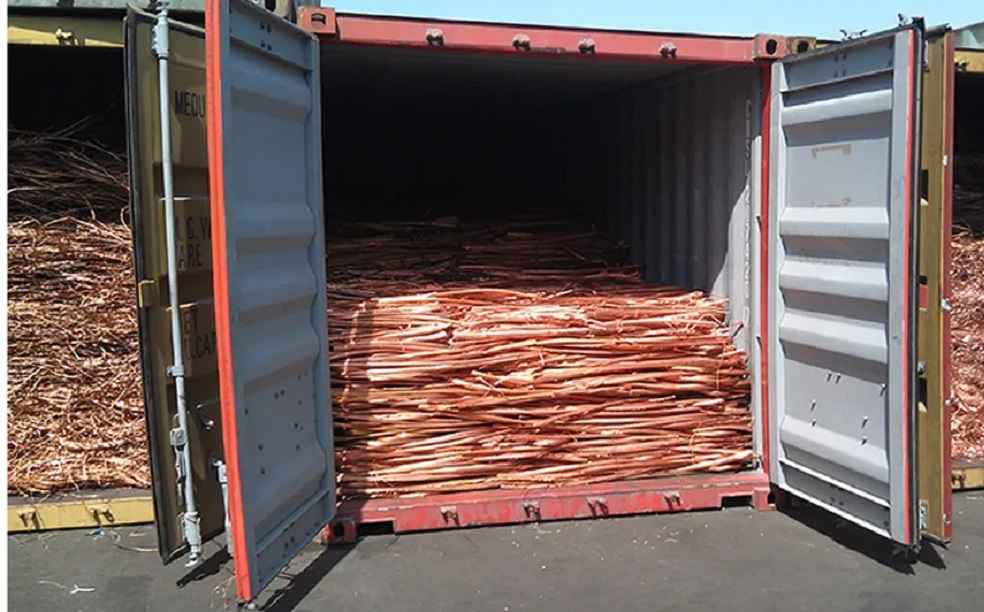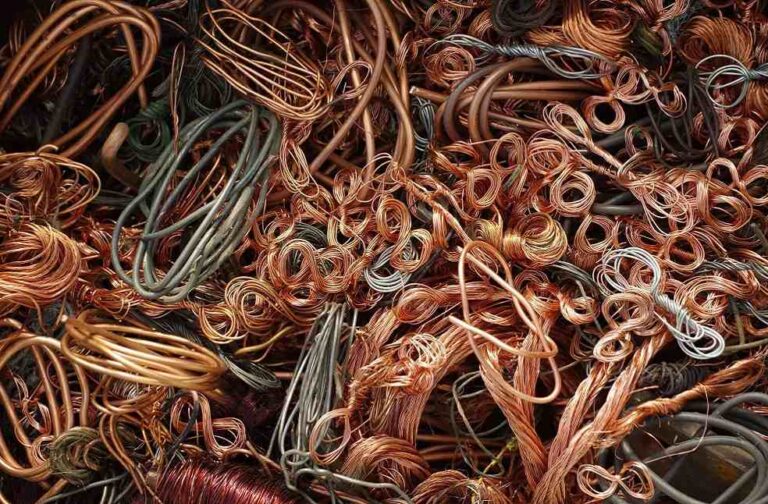South Korea has initiated a clampdown on illegal copper scrap exports, focusing on traders, primarily Chinese-operated, whose actions are detrimental to the local industry. The surge in copper scrap shipments to China has left South Korean manufacturers scrambling for resources, prompting decisive government action.
Busan Regional Customs announced the uncovering of illicit export practices and price manipulation by seven traders. These traders, now under prosecution, allegedly profited from the illegal export of copper scrap acquired without proper tax documentation. Lee Dong-hyun, leading the investigation coordination division at Busan Regional Customs, detailed the scheme where traders exported copper scrap disguised as lower-value iron scrap to evade taxes.

China, as the world’s dominant copper consumer, has aggressively imported scrap from South Korea, capitalizing on tax loopholes. Shipments from South Korea quadrupled, reaching 67,043 tons in 2023 compared to 16,340 tons in 2020. Sources estimate an even higher volume when considering copper scrap routed through countries like Thailand and Malaysia before arriving in China.
On April 11, about 40 officials from Busan Regional Customs conducted synchronized raids across Gimhae, Hwaseong, and Pyeongtaek. They secured key evidence, including computers, mobile phones, and business records, along with 49 tons of copper scrap falsely labeled as iron scrap. The simultaneous raids were crucial to preventing evidence destruction, as emphasized by Lee.
Investigations revealed that the seven companies exported 12,970 tons of copper scrap, valued at 99.8 billion won ($74.7 million), under the guise of iron scrap. Furthermore, they manipulated export prices to evade taxes, resulting in an estimated tax evasion of over 77.1 billion won. These traders also engaged in money laundering, reportedly funneling up to 139.2 billion won through foreign exchange frauds involving cryptocurrencies like Bitcoin.

The crackdown has started to restore balance in South Korea’s copper scrap market. Exports fell by 25.6% in the second quarter of 2024, with prices nearly quadrupling during the same period. This shift can be attributed to stricter enforcement and a decrease in global copper demand, leading to lower prices. A local trader noted the stabilization of prices as Chinese dealers complied with tax regulations.
The actions taken in South Korea highlight the complex interplay between global demand, regulatory oversight, and market stability. As global copper prices decline and South Korean authorities tighten control over illegal trade, the domestic market begins to stabilize. The Korea Nonferrous Metal Association observed a significant impact, noting that the stabilization followed global funds unwinding their positions in copper and a sluggish Chinese construction industry.
GLOBAL EVENTS | Gamescom: World’s Largest Video Game Show Begins Today



